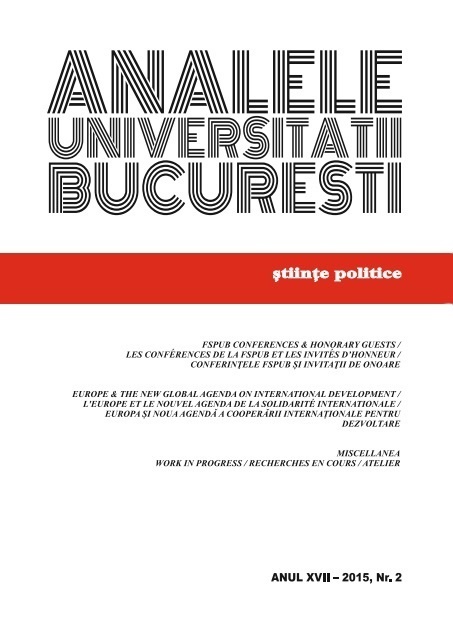Foreign Policy of Post-Communist Countries after the EU Enlargement: From Post-Accession Fatigue to Exporting the Democratic Transition
Foreign Policy of Post-Communist Countries after the EU Enlargement: From Post-Accession Fatigue to Exporting the Democratic Transition
Author(s): Luciana Alexandra GhicaSubject(s): Politics / Political Sciences
Published by: Editura Universităţii din Bucureşti
Keywords: Development policy; Official Development Aid (ODA); Central and Eastern Europe; European Union; foreign policy; democracy; democratization; transition; conditionality; elite mobility
Summary/Abstract: The fall of the European communist regimes in late 1980s and early 1990s triggered throughout the region not only domestic transitions to democracy but also dramatic changes in the foreign policies of these countries. Most notably, the membership acquirement in major Western European intergovernmental organizations such as OSCE, NATO and EU represented for all of them the main foreign policy goal of the transition. At discursive level and throughout the entire period these integration efforts had been frequently represented by both these countries’ governments and their European or US partners in relation with the domestic advancements in democratisation: being member to the “Euro-Atlantic” organisations was equated with being recognized also as a democracy. Therefore, once the EU membership was acquired, many considered that, at least formally, the democratic transition also ended and the foreign policy of these countries needed thus new goals. Although the focus has not been radically changed for any of these governments’ external action, the democratization experience provided all of them with opportunities both for fulfilling their international obligations and for building their newly (re)established international development policies. The paper briefly presents these intertwined processes and identifies questions for a future research agenda in this field, while arguing that elite mobility is a factor often more relevant than conditionality in understanding these policies.
Journal: Analele Universităţii din Bucureşti. Seria Ştiinţe Politice
- Issue Year: XVII/2015
- Issue No: 2
- Page Range: 119-128
- Page Count: 10
- Language: English

